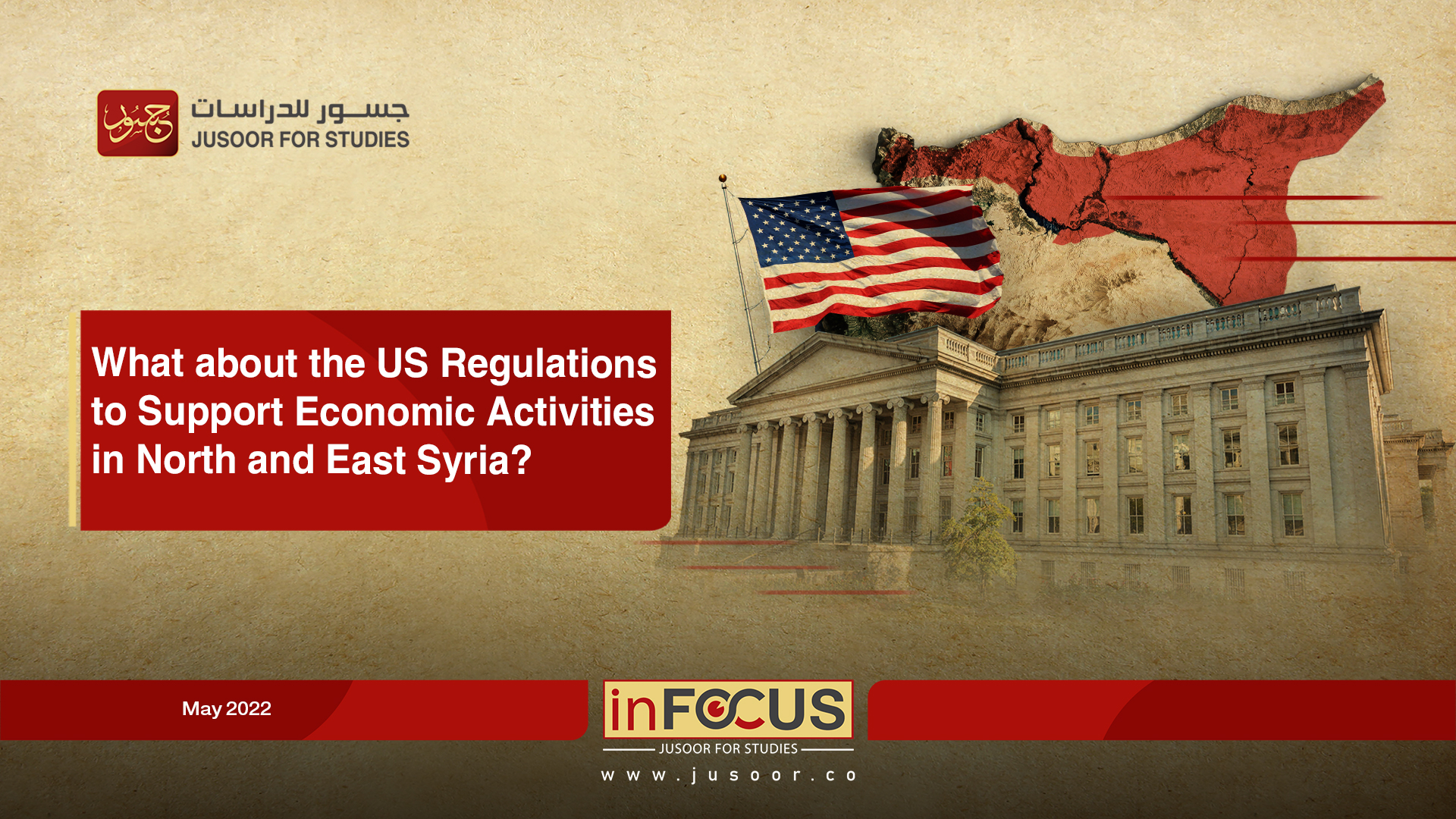What about the US Regulations to Support Economic Activities in North and East Syria
What about the US Regulations to Support Economic Activities in North and East Syria?
On May 13, 2022, two days after the Brussels conference “Supporting the future of Syria and the region", the Office of Foreign Assets Control at the US Department of the Treasury announced that companies and individuals wishing to work outside the areas controlled by the Syrian regime in northeastern and northwestern Syria were authorized to operate, with the exception of Idlib and Afrin. The license authorizes access to all facilities necessary to carry out work in the sectors of agriculture, information and telecommunications, power grid infrastructure, construction, finance, clean energy, transportation and warehousing, water and waste management, health services, education, manufacturing, and trade, even if these facilities were prohibited under previous penal laws.
Although activities in these sectors were not prohibited earlier, at the level of individuals and institutions, what is new is to ensure the ability to transfer funds and import production requirements necessary to carry out their work, even if they are high-tech techniques and equipment, and any equipment or transactions necessary to carry out business in the mentioned sectors, with the exception of Syrian petroleum products, that were previously restricted under US sanctions laws.
Under the recent regulations, American companies and related institutions can enter to work in the eastern and northern regions of Syria within the specified sectors. Note that the Syrian community in the United States of America had called for such regulations several years ago in order to open communication institutions, contribute to construction and housing works, and ensure the transfer of funds in legitimate and licensed ways.
It can be said that the decision comes in the context of early recovery, as Western countries had agreed on the need to advance this haste through medium-term projects in Syria, away from the reconstruction they reject unless there is a political solution. In essence, the early recovery process aims to support the ability of local communities to rely on themselves and move the wheel of production to ensure less dependence on relief work and humanitarian aid; This will, in turn, reduce the burden on donors on the one hand, and weaken the ability of extremist organizations to recruit young people for financial reasons on the other hand.
It is expected that the announced regulations will enhance the entry of non-profit institutions further to support early recovery programs and establish small projects that develop the structure of the public sector and contribute to the development of infrastructure. It is also expected that some companies and individuals will intervene in order to support the housing process and establish larger projects than in the past. The region may also witness an influx of communication technologies, relatively developed agricultural and industrial mechanization, and the opening of licensed official transfer offices.
On the other hand, although the announced list excludes the areas of the Syrian regime, punished and banned individuals, as well as oil activities from any exceptions to the sanctions, doubts still exist about the regime’s ability to benefit from such exceptions through the great overlaps between its areas of control and the ones outside its control; Especially in the field of foreign currencies and raw materials.








